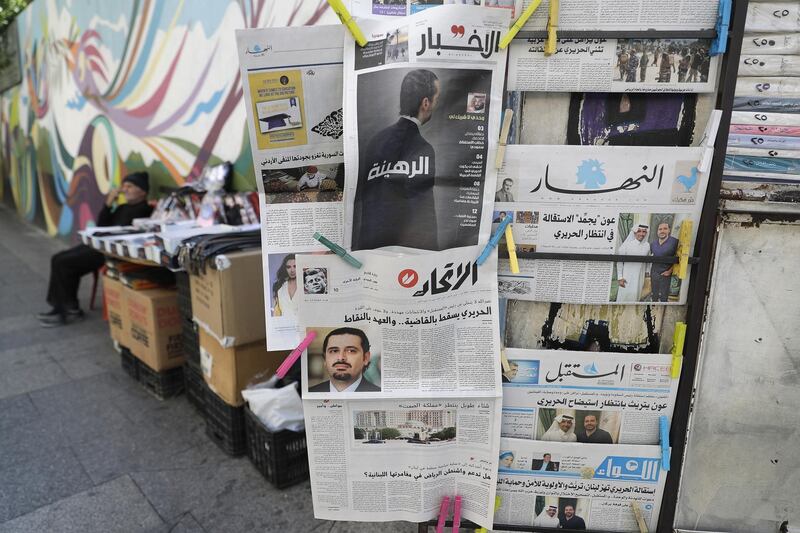The UAE Embassy in Beirut has denied claims made by Lebanon's pro-Hezbollah Al Akhbar newspaper regarding an "Emirates Leaks" report that says Abu Dhabi is applying pressure on Muscat over the Qatar crisis.
The embassy has called the leaked diplomatic correspondence from the UAE Embassy in Muscat "false" and said that it was aimed at creating tension with Oman.
In a statement issued on Sunday, the media office of the embassy in Beirut said the “reports cannot be further from the truth, completely fabricated from the imagination of who wrote it, and lacks the honesty needed from news organisations”.
The UAE, along with Saudi Arabia, Bahrain and Egypt, cut relations in June 2017 with Qatar over their support of terrorism. The diplomatic standoff has seen the typically tight-knit GCC fractured, with Kuwait and Oman acting as neutral mediators in the worst crisis to hit the bloc since its formation.
The Lebanon-based Al Akhbar attributed the leaks from the UAE's embassies in Muscat, Baghdad, Khartoum and Rabat, to a single relatively unknown source: "Emirates Leaks".
The source, which is blocked in the UAE, joined Twitter in February 2018 and claims to be located in Montreal, Canada. Al Akhbar has used Emirates Leaks as its only source on dozens of articles usually targeting the UAE.
_______________
Read more:
Qatar foreign minister, ambassador at heart of $1bn hostage deal with terrorists
Britain warned over Qatar's London intelligence network
Bahrain clamps down on fake Qatari social media accounts
_______________
The embassy said the report is “clearly resulting from Qatari funding, which promotes these fabricated dossiers and takes advantage of the Lebanese media landscape to target the UAE”.
“The embassy reiterates, Qatar’s attempts through media and other avenues that try to leverage fake document, is only trying to cover the main issue in the Qatar crisis: that Doha funds extremism and terrorism, and tries to interfere in the affairs of the Arab countries,” the embassy statement continued.
The Beirut-based newspaper has been criticised in the past for being pro-Hezbollah, the Shiite militia that acts as a proxy for the Iranian regime. The newspaper was banned in Syria in 2011.
In a letter to The New York Times in January 2011, the former US Ambassador to Lebanon, Jeffrey Feltman, referred to Al Akhbar as "associates" to Hezbollah fashioning themselves as the authentic voice of the oppressed Lebanese people.
The crisis has seen a media war break out with millions being funneled into legal advisers, newspapers and lobbying groups to promote their side of the boycott.
In May, Dr Abdulkhaleq Abdullah, author and a political-science professor at UAE University said that Qatar has been “playing victim” to try to avoid addressing the quartet’s original grievances.
The embassy has called on Lebanese officials to take measures to protect Lebanon from becoming a “media arena that promotes false news”.






